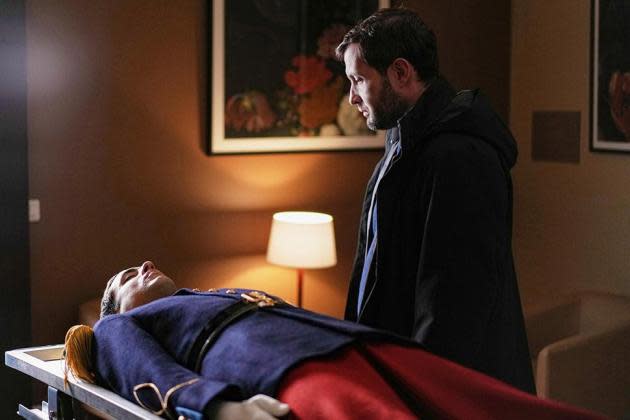Venice Review: Rachid Hami’s ‘For My Country’

“Candy is better in France,” says a small boy to his brother in a flashback scene in For My Country (Pour La France), Rachid Hami’s personal drama premiering in Horizons at the Venice Film Festival. The boy’s Algerian family is considering moving to France, and his simplistic response sums up his innocent, optimistic view of his new home. But — as we have already discovered — France will bring tragedy to the family in this moving account based on Hami’s memories of his late younger brother.
As a young adult, Aïssa (Shaïn Boumedine) has enlisted in the prestigious military academy of Saint-Cyr, dreaming of serving the country he has become devoted to: France. But Aïssa dies during a fresher hazing initiation that takes place in freezing water.
More from Deadline
Venice Review: Brendan Fraser In Darren Aronofsky's 'The Whale'
Venice Review: Virginie Efira In Rebecca Zlotowski's 'Other People's Children'
His elder brother Ismaël (Karim Leklou) tries to comfort their distraught mother Nadia (Lubna Azabal) and to help her navigate the changing attitudes of officials, who withdraw their offer of a military funeral. Meanwhile, flashbacks show key moments from their childhood in Algeria, and from the adult Ismaël’s visit to Aïssa in Taiwan, not knowing how little time they had left to spend together.
It’s an emotive set-up but told in an unsentimental fashion. The elegant screenplay, co-written by Hami and Ollivier Pourriol, opts for an observational approach, whether we are watching the wailings of a grieving mother or the singing of two brothers enjoying karaoke in a taxi.
Performances are strong and characters are complex: Hami is clearly keen to avoid stereotype. Mother Nina has many layers. Having left her children’s abusive father, she’s strong-minded and capable, but that’s only part of the story. Ismaël is a believable central figure, a rebel who resents the way his brother has been treated by both his country and the military. The authorities aren’t simply vilified, however. The complexities of their decisions are explored and one, General Caillard (Laurent Lafitte), is sympathetic. For My Country may not be overtly political, but its personal story exposes some of the challenges of Muslims living in France, including prejudice and injustice.
The scenes between the two grown brothers in Taiwan are among the film’s most tender, and also tense, as Ismaël struggles to connect with Aïssa’s girlfriend. There’s a telling scene on New Year’s Eve when the couple kiss at the stroke of midnight, Ismaël visibly alone at that moment, among strangers and his distracted brother.
For My Country explores many facets of displacement through an atmospheric and memorable film, ending on a wistful note of nostalgia that shows Hami’s desire to find light in darkness.
Best of Deadline
Sign up for Deadline's Newsletter. For the latest news, follow us on Facebook, Twitter, and Instagram.

 Yahoo News
Yahoo News 